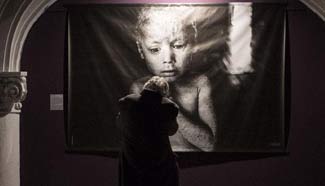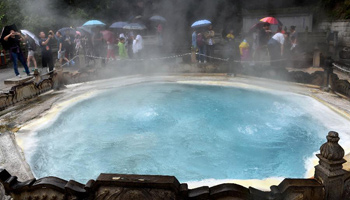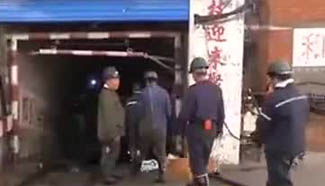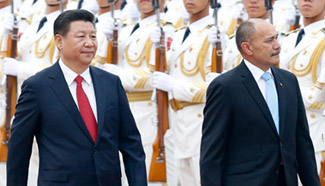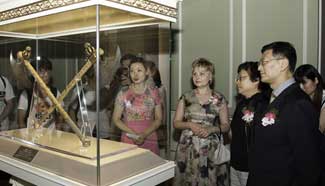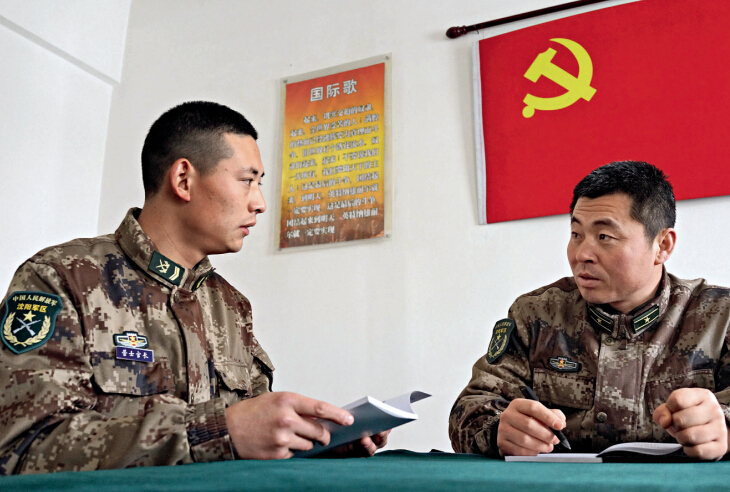
????An infantry brigade of the 39th Army of the Shenyang Military Area Command is piloting the new rank of chief non-commissioned officer. On Dec. 9, 2014, the infantry brigade promoted 36 outstanding non-commissioned officers (NCOs) as chiefs in companies and battalions. Analysts said the designation was the prelude to a chief non-commissioned officer system throughout the People’s Liberation Army (PLA). Why is the PLA setting up the system? How are the chief NCOs selected? What responsibilities do they have?
????Why is the PLA setting up the system?
????Chief non-commissioned officers have been established in many of the world’s armed forces as command depends on commissioned officers while training and administration depends on NCOs. The NCO system dates back more than 500 years. It first appeared in the French armed forces at the end of the 15th Century, and then spread through Europe, the Americas and the world. NCOs in many countries work in administrative organs, field forces and military academies, mainly as technicians, accountants, secretaries, quartermasters and communicators. NCOs are the professional backbone of these forces. Some operate and maintain important new high-tech devices and deal with high-level secrets.
????NCOs have replaced commissioned officers in many posts, such as staff and personnel NCOs in the U.S. and British forces, and communications NCOs in charge of civilian liaison in Japan. They manage administration, training and security in U.S. NCO academies, and in many NCO academies, principals and trainers are all NCOs. U.S. armed forces units above battalion level have chief NCOs to assist officers with daily training.
????With modernization, more personnel are operating complicated weapons in the battlefield, but these take time to master. It is hard for compulsory soldiers to master complicated weapons in short service time. At the start of the Cold War, more countries began cultivating NCOs to help adapt to these advances. When the Cold War ended and troop numbers were cut, NCOs were retained and took bigger proportion of armed forces. Now, NCOs account for 38 percent of the British army, 37 percent of the French armed forces, 47 percent of the Japanese self-defense forces and 64 percent of the U.S. armed forces.
????Experts say China is facing similar circumstances with modern weaponry becoming more complicated. In two years, recruits with lower education levels find it hard to master advanced weapons. The number of officers is limited and cannot be greatly expanded. In order to attract and retain better-qualified personnel, the PLA must recruit NCOs in a professional way.
????At present, officers at grassroots levels conduct heavy combat training and daily administrative affairs, affecting their training in command abilities. It also weakens the construction of the PLA. Meanwhile, NCOs in charge of administration are not well ranked and their talents are not fully tapped, affecting the construction of the NCOs. The chief non-commissioned officer system is a trial to make up for deficiencies in the current NCO system. It lets chief non-commissioned officers share officers’ responsibilities in training and administration so as to liberate officers from other affairs and focus on combat.



